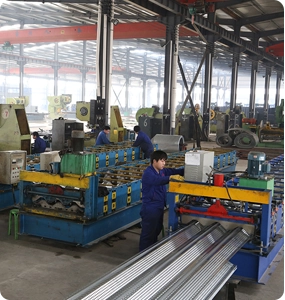Do Highway Sound Barriers Work?
Highway sound barriers, also known as noise barriers, have become a common feature alongside many busy roads and highways around the world. Their primary purpose is to mitigate the noise pollution generated by vehicular traffic, providing relief to nearby residents and maintaining the overall quality of life in urban and suburban areas. But the question remains do these barriers actually work?
Understanding Noise Pollution
Before delving into the effectiveness of sound barriers, it’s essential to understand what noise pollution is and why it is a concern. Noise pollution typically refers to unwanted or harmful levels of noise, which can disrupt daily life, affect mental health, and even lead to physical health issues. The World Health Organization acknowledges that continuous exposure to high noise levels can result in increased risks of cardiovascular diseases, sleep disturbances, and impaired cognitive function. Therefore, addressing noise pollution is not just about comfort; it is about public health.
How Sound Barriers Function
Sound barriers are usually made from materials such as concrete, brick, or specially designed sound-absorbing panels. They are constructed to block or reflect sound waves, preventing them from traveling into residential areas. The effectiveness of these barriers depends on several factors including
1. Height and Length Taller and longer barriers are more effective in blocking noise. A barrier must be high enough to intercept the noise before it reaches the ear level of residents.
2. Material Composition The density and material of the barrier play a crucial role in sound absorption. Sound travels better through solid mediums, so denser materials are typically more effective at reducing noise.
3. Distance from the Source The distance between the source of the noise, the barrier, and the area to be protected also significantly impacts effectiveness. The farther away a residence is from the noise source, the less impact the noise will have.
4. Topography The natural landscape can influence noise levels. A hill or other natural formation can help shield sound but can also complicate barrier construction.
do highway sound barriers work

Studies and Effectiveness
Numerous studies have been conducted to assess the effectiveness of sound barriers. Research indicates that, on average, sound barriers can reduce noise levels by 5 to 20 decibels, which is significant, given that a reduction of about 10 decibels typically translates to a perceived halving of loudness. However, the actual reduction in noise can vary widely based on the aforementioned factors.
Several case studies have reported positive outcomes. For example, in urban areas where sound barriers were installed along highways, residents noted a decrease in daytime and nighttime noise levels, leading to improved sleep quality and overall satisfaction. In some instances, barriers not only reduced noise but also provided aesthetic benefits by being integrated into landscaping designs.
Limitations of Sound Barriers
Despite their effectiveness, sound barriers are not a one-size-fits-all solution. They have limitations
- Reflection of Sound In some cases, sound barriers can reflect noise back towards the source or create tunnels of sound that may carry noise in unexpected directions.
- Cost and Maintenance Building and maintaining sound barriers can be expensive. Determining the most effective locations for barriers can require extensive planning and investment.
- Limited Scope Sound barriers typically address only the specific area along highways where they are installed. Noise pollution from other sources, such as nearby industrial areas or airports, may still affect residents.
Conclusion
In conclusion, highway sound barriers are an effective measure for reducing noise pollution and enhancing the living conditions of those residing near busy roads. While they cannot completely eliminate noise, they can significantly minimize its impact. As urban areas continue to grow and traffic increases, the role of sound barriers in noise mitigation will likely remain vital. Continuous research and advancements in materials and construction techniques will further improve their effectiveness, ensuring that the well-being of communities is prioritized in our noisy world.
-
Why Galvanized Trench Cover Steel Grating Resists Corrosion
NewsJul.10,2025
-
The Versatility and Strength of Stainless Expanded Metal Mesh
NewsJul.10,2025
-
Load Calculations in Steel Grating Platforms
NewsJul.10,2025
-
Keeping Pets and Kids Safe with Chicken Wire Deck Railing
NewsJul.10,2025
-
Hole Diameter and Pitch for Round Perforated Metal Sheets
NewsJul.10,2025
-
Aluminium Diamond Mesh in Modern Architecture
NewsJul.10,2025
Subscribe now!
Stay up to date with the latest on Fry Steeland industry news.

